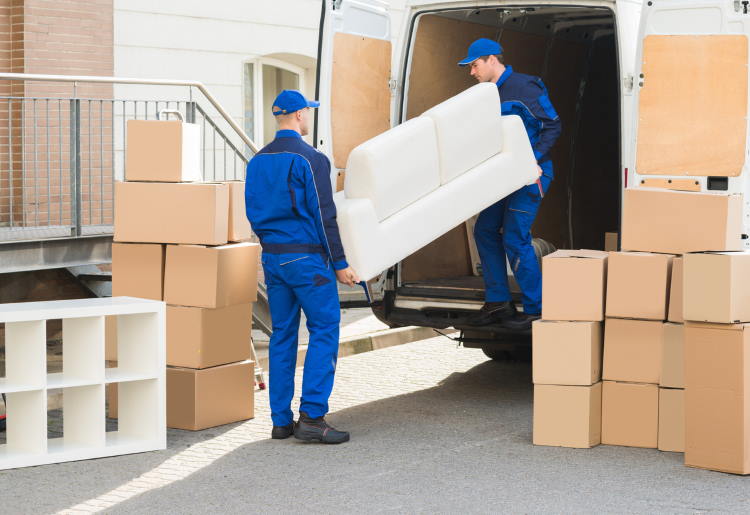When it comes to the best moving companies, they all have rules on what they are willing to move and these guidelines generally exist to protect either the company or the customer's possessions. Before you start packing up, it's best to know what movers are and aren't willing to move. After all, no one wants to have to do any last-minute repacking.
Movers will move:
- Large furniture - Most moving companies are willing to move large items of furniture such as bookshelves, tables, and sofas. Companies vary with how accommodating they are willing to be, but some companies are willing to disassemble and reassemble large items when necessary.
- Fragile items - This can be anything from glass to artwork, or small curios or figurines. Professional movers will make sure these delicate items are carefully wrapped to keep them safe and whole.
- Large appliances - Some companies will disconnect as well as transport larger appliances such as dishwashers, washing machines, and dryers.
- Kitchen appliances - Including any appliances such as stoves, ranges, and microwave ovens, which are not built-in, professionals will make sure your appliances are packed as securely as possible.
- Pool tables - As they have many parts and will need to be disassembled and later reassembled to be moved, it’s best to leave pool and billiards tables to the professionals.
- Rugs - Most moving companies will move any rugs in your home, including large area rugs.
- Books - Moving companies will usually give you a specific type of box for books, as these boxes are stronger and can handle the weight of many books stacked together.
- Glass objects - Larger glass objects such as chandeliers or table-tops will also be moved by professional movers.
- Large electronics - This can include computers, TVs, and laptops.
- Specialty items - Some specialty items such as pianos and hot-tubs can be moved by professionals, but usually, it’s best to make sure to use a company that specializes in moving such items.
Movers won’t move:
- Hazardous materials - This includes cleaning fluids, aerosols, and even nail polish and nail polish remover. It’s best to try to use up these items or trash them before the move.
- Perishable foods - Most companies are unwilling to transport any foodstuff which could spoil; this includes frozen or open foods. If you want to take food along, it's best to bring it in your own transportation. Sealed non-perishables are generally okay.
- Plants - The transportation of plants is heavily regulated by the US Department of Agriculture and plant health agencies to prevent the spread of pests, diseases, and other environmental hazards.
- Pets - Even if they’re caged or well behaved, temperatures in moving trucks can reach extremes, of both heat and cold, and this is definitely not an ideal environment for a living creature.
- Valuables - Including personal or sentimental items, most companies don’t have a policy against moving such items, but it's best to keep anything you value close at hand. Ask yourself if the item is replaceable. If the answer is no, transport it yourself.
- Scuba gear - Scuba gear includes pressurized oxygen and other delicate items. Pressurized air can explode with minimal impact, so a moving truck is definitely not the safest place for scuba gear.
- Power equipment with fuel - Movers will only move power equipment such as lawnmowers and the like once the fuel has been emptied. It is also recommended to run the equipment until it's dry after draining. Most companies recommend you do this 24 hours before the move.
- Flammable items - Items such as propane tanks, aerosols, paint, and even charcoal will usually not be allowed on a moving truck. These items must generally be discarded or used up before your move.
- Explosives - Tying in to many of the items on this list, moving companies are generally unwilling to transport anything that could put them or the rest of your stuff at risk. This includes explosives such as ammunition and fireworks.
- Corrosives - This includes batteries with acid, muriatic acid, and nitric acid. If you need to move batteries, be sure that they are gel-type and non-spillable.
Happy Moving Day
In general, moving companies are willing to work with the customer’s needs, but be sure to confirm with your movers what they can and can’t do for you. Companies will have different limitations, so it’s best to check out a few and see which one works for you. Moving companies usually also have a list of the items they are and aren’t willing to move specific to their company, so, when planning your move, feel free to ask questions and request a list.

